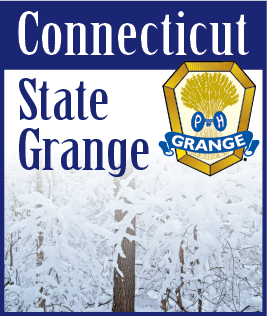| NOVEMBER 20, 2020 -- The following is an opinion piece written by National President Betsy Huber and published by AgriPulse.
Today, the COVID-19 pandemic has demonstrated the urgent need for high-speed connectivity as more Americans are turning to the internet to access vital services – such as telehealth – than ever before. In fact, one expert study found that virtual health interactions surged by 50% at the outset of the pandemic and are projected to top 1 billion by the end of 2020.
Our leaders in Washington deserve credit for their swift action to meet this public health challenge. The Coronavirus Aid, Relief, and Economic Security (CARES) Act Congress passed earlier this year helped expand coverage for telehealth services to enable patients to access vital care and consultations without having to put themselves at greater risk of catching COVID-19. Congress has also introduced standalone legislation to mandate insurance companies to cover telehealth services just as they would any other service necessary to meet patients’ needs.
These and other legislative developments demonstrate that policymakers understand the importance of telehealth – especially for treatment in areas like mental health and addiction – during a time of such unprecedented hardship. However, there is still much work to do to connect rural communities to modern health solutions to address both immediate and long-term needs. A recent report by the Department of Health and Human Services found that “providers in both rural and urban counties saw increases in telehealth adoption and utilization, however, providers in rural counties saw a smaller growth in telehealth visits” in March and April of this year. I suspect this gap in telehealth adoption may be due in part to a lack of broadband access.
Broadband and telehealth access are not just rural issues. The Federal Communications Commission (FCC) estimates that roughly 18 million Americans still do not have access to broadband at sufficient speeds. That includes nearly one-quarter of rural Americans—or 14.5 million people. As we all continue to adapt to the conditions of the pandemic – one of physical distancing from friends and family, remote learning, and telework – the lack of high-speed internet access can make daily life more challenging for rural communities and slow attempts to accelerate economic recovery.
Americans without the necessary connectivity may not be able to get the care they need. According to a Kaiser Family Foundation report, “ensuring reliable internet connection, and sound and video quality on both the patient and provider end remains important for any telehealth interaction.” This is especially concerning in rural communities where populations are often older, in poorer health, and less economically advantaged than their urban counterparts.
Lawmakers should act with urgency to ensure all Americans have access to high-speed broadband networks. Proposals such as fully funding the Broadband DATA Act to create an entirely new set of coverage maps will help to more accurately assess coverage gaps. Securing government funding to encourage investment and buildout in rural areas is a step toward providing rural residents with the resources they need to get connected.
Telehealth is vital to keeping rural Americans healthy and safe, but without access to broadband internet, efforts to increase the availability of these services will fail. The pandemic has made it clear there is still much that needs to be done to close the digital divide between rural America and the rest of the country. By investing in our nation’s broadband infrastructure, Congress can help ensure that our rural and underserved communities are prepared to meet their most basic health and safety needs. |
